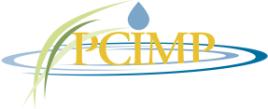PCIMP Fact Sheet
Published on 05 March, 2008
- PCIMP officially began monitoring operations with a pilot study in 2005.
- Funding of $750,000 is required each year to conduct and analyse the research

- PCIMP is an ongoing program that will result in updated EcoCards being produced in the future
- In metropolitan areas similar health report card projects receive Government support. PCIMP is unique in its organisational model that operates primarily on local private support
- The full report outlining methodology, results and conclusions is freely available to the public on the website (http://www.pcimp.com.au/) which will be updated as further results are available
- PCIMP members participation is over and above their standard operational license conditions and members contribute to the program as part of their vested interest in the ongoing health and sustainability of the Port Curtis harbour
- Key PCIMP research team members are:
|
Dr. Leonie Andersen |
PCIMP Coordinator |
Central Queensland University |
|
Dr. Felicity Melville |
Senior Research Officer |
Central Queensland University |
|
Assoc Prof. Larelle Fabbro |
Associate Professor |
Central Queensland University |
|
Dr. Scott Wilson |
Research Fellow |
Central Queensland University |
|
Dr. Andrew Storey |
Adjunct Senior Lecturer |
University of Western Australia |
|
Dr. Peter Teasdale |
Senior Lecturer in Environmental Chemistry |
Griffith University |
|
Dr. Dianne Jolley |
Senior Lecturer in Environmental Chemistry |
University of Wollongong |
|
Dr. Michael Rasheed |
Senior Scientist |
Department of Primary Industries & Fisheries |
FREQUENTLY ASKED QUESTIONS
Why was PCIMP created? A group of 15 members representing industry, government (both local and state), research institutions and other stakeholders joined together to develop a cooperative, integrated monitoring program to manage our local ecosystem. PCIMP formalised and built on previous sub-section harbour health assessments by the Cooperative Research Centre for Coastal Zone, Estuary and Waterway Management (Coastal CRC).
How were researchers chosen? As a team they were selected for their specific expertise in specialist fields across the range of disciplines required in the holistic monitoring program, but more particularly for their local knowledge having researched in the local area for the past ten years.
What is an Ecosystem Health Report Card? Ecosystem health (EH) is the ability of an environment/ecosystem to cope with stress from both human and non-human impacts. The card will provide a health rating (A+ to F-) for each of the nine harbour zones, based on the data collected during the monitoring,
Why don't each of the impacting industries conduct this monitoring themselves? The PCIMP collaboration amongst industries, government agencies and a University is the most effective way to deliver a holistic monitoring program, to share data and to work together on identifying issues and establishing strategies to monitor impacts. The research program allows analysis of results from one area of the harbour in cross-comparison with other areas of the harbour.
Can PCIMP members influence the results?
No. Open and transparent processes have underpinned the entire program. Through a collaborative model, PCIMP has been designed to provide direct feedback to each industry on their receiving and adjacent waters in the form of individual reports, in addition to providing a ‘whole of harbour' assessment in the form of the Port Curtis Ecosystem Health Report Card that is (PC EcoCard) available to the community. PCIMP made a commitment to the release of these results without prior knowledge of the outcome.
Have the results been audited or cross-checked?
All reports are independently peer reviewed.

